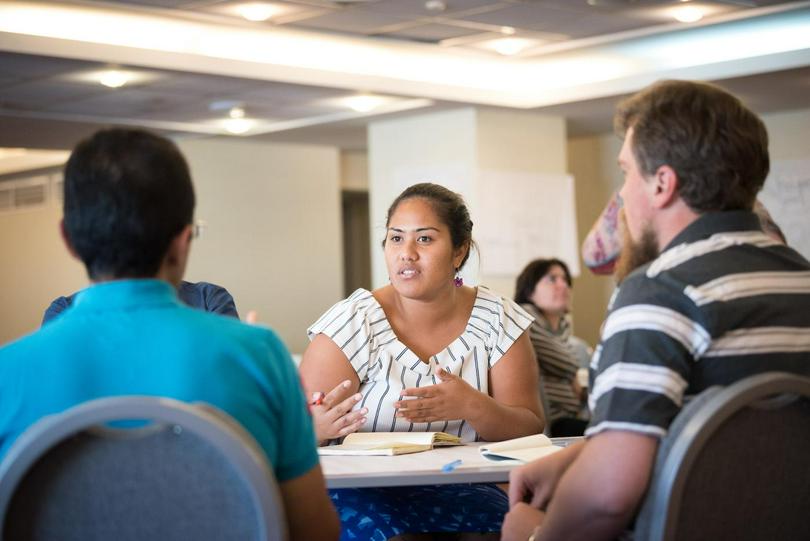In the first installment of a new online quarterly seminar, “JUST Talk,” speakers offered perspectives on the 12 critical areas flagged in the 1995 Beijing Platform for Action (BPfA) aimed at ensuring greater equality and opportunities for women and men, girls and boys.
The seminar, entitled “Critical Engagement: The Beijing Declaration's Critical Areas for Church Women Today,” also presented ideas for actions and advocacy that need to be incorporated in individual and ecumenical efforts.
Hosted by the World Council of Churches Just Community of Women and Men, the seminar series is building an ecumenical network of global actors for gender justice.
Mutale Mulenga Kaunda, a Zambian living in South Korea, is a research associate at the University of South Africa, and convenor of the network. Thirty years after the BPfA, she believes we are still fighting for women to be seen.
”We are fighting for women to be heard,“ said Kaunda. ”There still is an urgent need for various networks to continue to take action. It‘s something that, when you think about it, we shouldn’t even be talking about. But we are still discussing these issues.“
Alicia Mondesire, an author from the Caribbean region, is a global gender equality consultant and trainer. “Gender violence is rooted in gender equality,” she said, noting that there are populations particularly vulnerable to gender violence.
“Indigenous women and migrant women are particularly at risk,” said Mondesire, who was involved in the Beijing Platform for Action at its inception. “It was very much looking at the aspiration that women and girls would be free from violence,” she said. “It signaled the dawn of an international framework that contested against violence in a holistic manner.”
Bafana Khumalo, South Africa gender expert with Men Engage Africa, proposed self-examination as a preparatory step for BPfA+30. ”I do think that we need to take stock and ask ourselves very serious questions in terms of our efforts in the faith sector in joining efforts with those who are working very hard to stem the tide of gender-based violence in the world…in the last 30 years, what have we achieved in advancing the platform of Beijing Platform in the faith communities?"
Khumalo added: ”We cannot have peace in an environment where others are not treated with dignity, with respect, and with love.“
Naomi Ayot, director of CAPAIDS Uganda, offered practical perspectives. She noted that her organization has helped 110 women become skilled in various vocational skills, rejuvenate their lives, and overcome trauma that comes with gender-based violence.
”Now that is empowerment of women in leadership at another level,“ she said.
Just Community of Women and Men
Originally from Webpage "The WCC"
CCD edited and reprinted with permission












